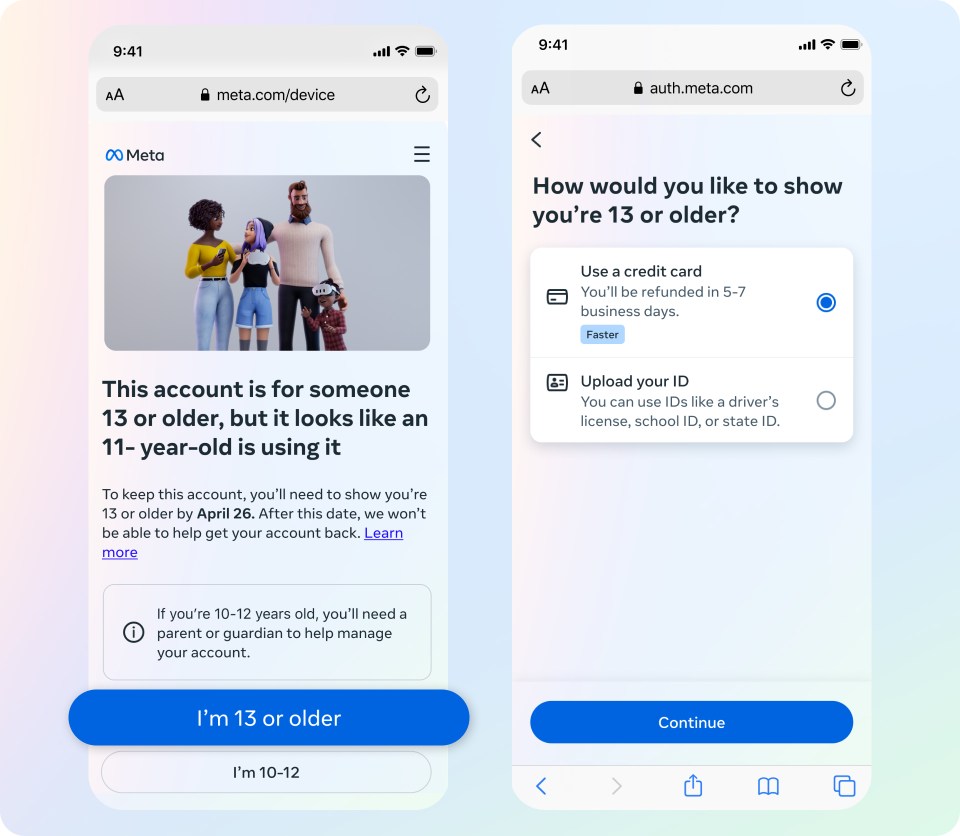
Meta Quest is a virtual reality platform that offers various experiences for users of different ages. Adults have the option of choosing a private or public profile with default settings that allow followers and connections to see activity. They can turn off active status at any time. Teens (13-17) have more privacy-oriented default settings on their Meta account, including a private profile, hidden activity and app in use unless shared by the teen themselves. Parental supervision tools are also available for teens ages 13-17. Preteens (10-12) have the most restrictive account settings with parent-managed accounts that require parents to set up an account for their child. Preteen profiles default to private, and activity, active status and app in use are likewise set to private with parents given control over these settings. Parents can also block access to specific apps at any time.



/cdn.vox-cdn.com/uploads/chorus_asset/file/23951351/STK043_VRG_Illo_N_Barclay_5_Meta.jpg)

